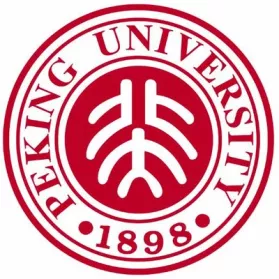If you want to gain a robust understanding of international business dynamics and an edge in navigating the global marketplace, studying an MBA in China—the world’s second largest economy—could be the answer.
Especially in business hubs like Beijing, you’ll be immersed in a thriving e-commerce market, at the forefront of exciting technological advancements, and in one of the nation’s leading financial centers.
BusinessBecause caught up with two international MBAs to find out why you should study an MBA in China's capital city in 2024.
You’ll understand China’s influence on Asia’s business landscape
The 21st century is predicted to become the ‘Asian Century’ as the region gains prominence in the global economic and business landscape. Within this, China holds significant influence as Asia’s largest economy and a key player in the region’s trade.

As her family business—a metal sheet panel manufacturer based in Bangkok, Thailand—has become increasingly involved with China, Pensiri Naviroj decided to take the opportunity to learn how to do business in China by enrolling in the MBA program at Peking University Guanghua School of Management in Beijing.
“I think an MBA in China provides a very different lens on how to see the economy and how China has influence in other countries, especially Thailand,” she says.
Her business ranges from forging various connections in China including raw materials suppliers, to sourcing producers for machinery, and expanding its customer base to Chinese clients in Thailand. Being immersed in Beijing's fast-paced business landscape is proving to be invaluable for understanding Chinese business etiquette.
“I think if I can overcome that barrier to be able to communicate with my suppliers or the owners of Chinese businesses it will be very impactful for our family business,” says Pensiri.
The PKU Guanghua MBA program puts students at the forefront of understanding China’s business and political landscape—and how they intersect—via courses such as China in the Global Political Economy, Doing Business in China, and Chinese History and Culture in a Global Context.
Students also take a Chinese language class which is essential for leaders hoping to build strong relationships with other business leaders in the region.
“I’ve learned that the business culture in Beijing is very much relationship based so it’s very important to learn the customs of conducting business and how it plays a role in forging strong relationships,” says Pensiri.
You’ll learn from expert professors and industry professionals
Studying an MBA in China's capital city means you’ll learn first-hand about the dynamic business landscape from expert professors and industry professionals who will be able to provide valuable insights to help further your career.
Classes such as Financial Accounting and Managerial Economics are helping Pensiri to fill the gaps in her business knowledge.
“It has been really interesting to ask questions to the professors who are experts in their fields. We’ve already dissected a lot of very interesting economic phenomenon in China which has been extremely eye-opening,” she says.
Beijing is home to a host of renowned multinational companies and the city generates 15% of the Fortune Global 500's revenue—a huge $6.1 trillion. PKU Guanghua welcomes industry guest speakers from these top companies to come in and discuss their sectors and the impact of current global trends with MBA students.
In just the first few months of studying the MBA, Pensiri and her cohort have met with the CTO of Microsoft China who shared insights into China’s tech industry, as well as professionals from Big Three consulting firms Bain & Company and Boston Consulting Group who spoke about the importance of sustainability and shared real-life case studies.
“These talks were very insightful and the topics were relevant for everyone in class,” says Pensiri.
You’ll be at the forefront of exciting business advancements
Known as the “world’s factory,” China is a manufacturing powerhouse, the largest e-commerce market globally—generating almost 50% of the world’s transactions—and is at the forefront of global innovations in the tech industry.

At the center of this is the capital city, Beijing. The city’s status as a global financial center attracts multinational corporations and startups alike, offering a wealth of opportunities for MBA graduates.
Beijing’s government is also proactive in fostering innovation and entrepreneurship through various incentives, making it the top city in China for startups.
Whatever industry MBAs are interested in tapping into, students on the PKU Guanghua MBA program have the chance to experience Beijing's fast-paced business world through experiential learning and company projects.
Rishi Malhan is a second year PKU Guanghua MBA student from the UK. He started his career in the finance industry in banking before launching his own real estate business.
While studying for the MBA, Rishi has had the chance to work in Shanghai for both a financial institution and a multinational real estate company. The chance to see first-hand how these industries are growing, innovating, and adapting to challenges has been a source of inspiration for Rishi.
“It’s interesting to see the cultural difference in work ethic and deal making. The experience has broadened my global perspective of these industries which will be invaluable for my career going forward,” says Rishi.
Image: ©Peking University Guanghua/FB




